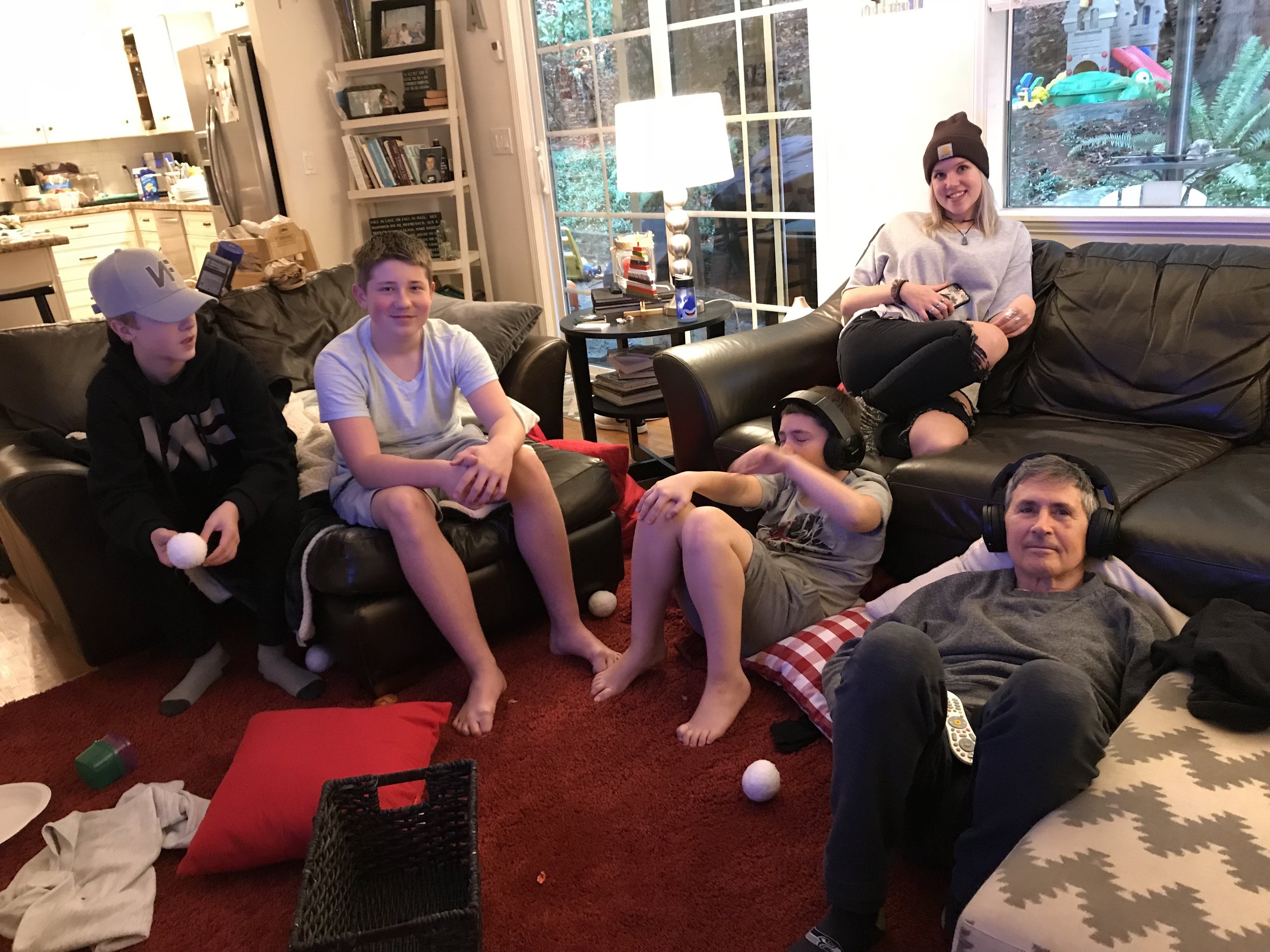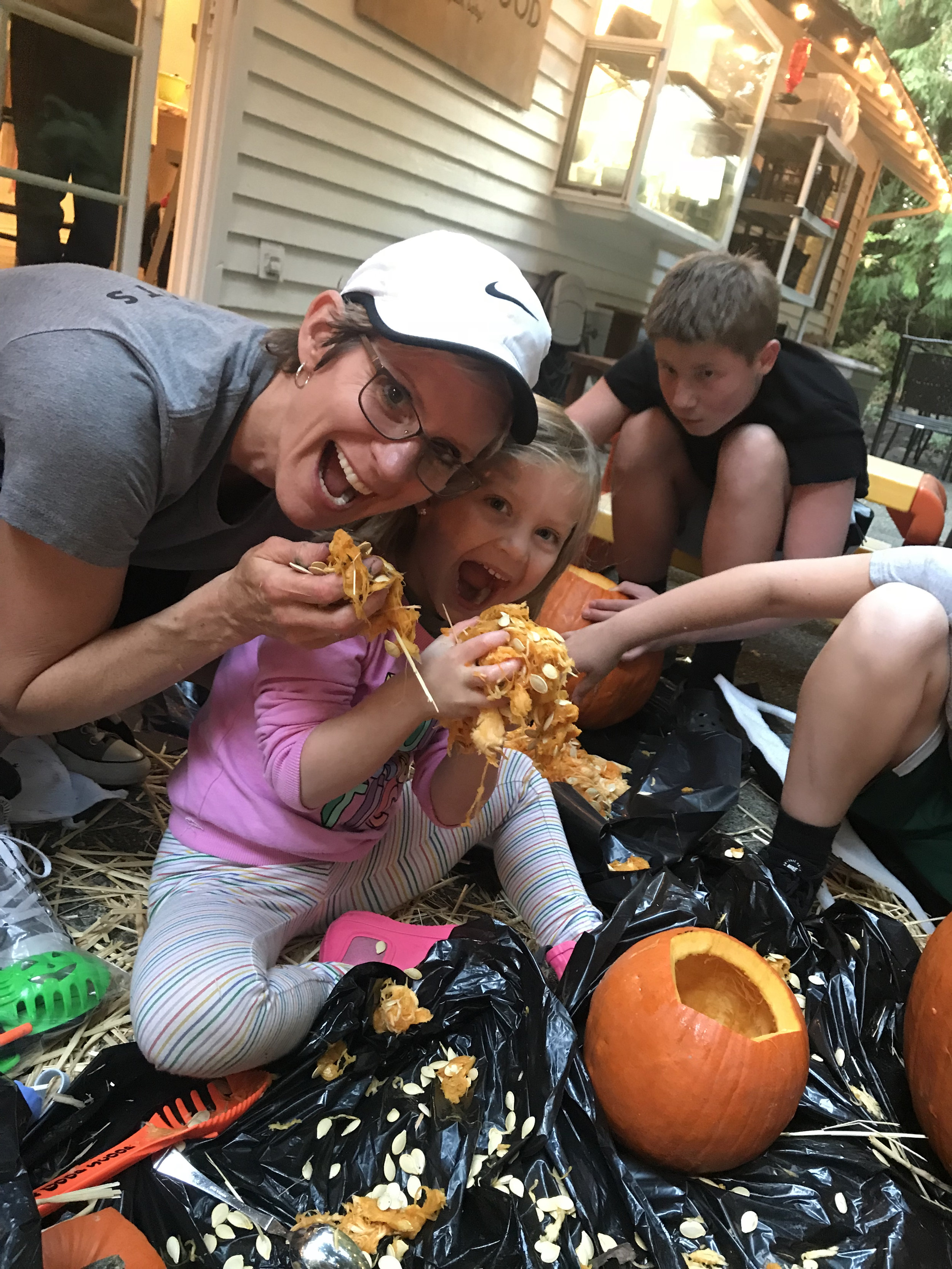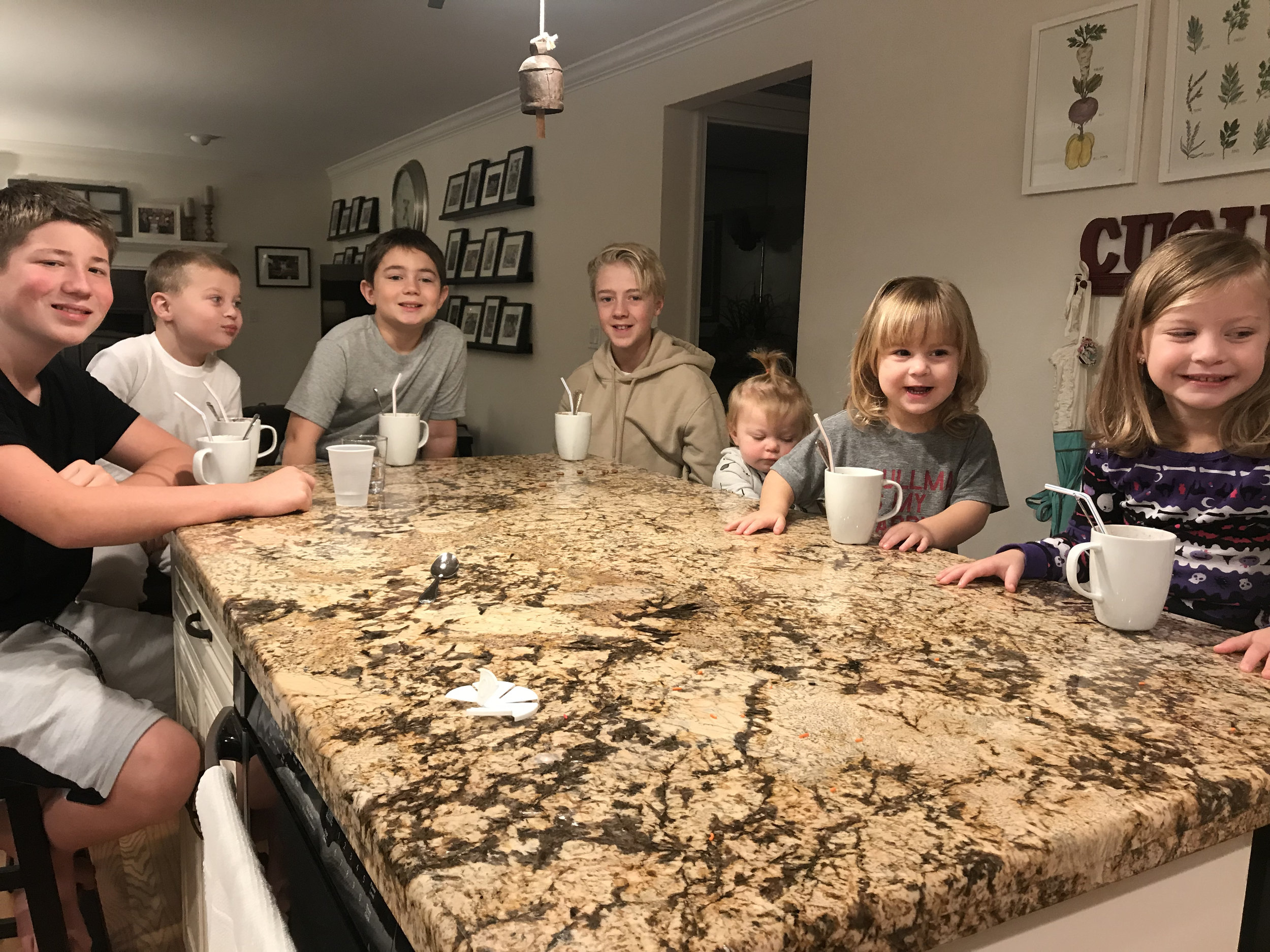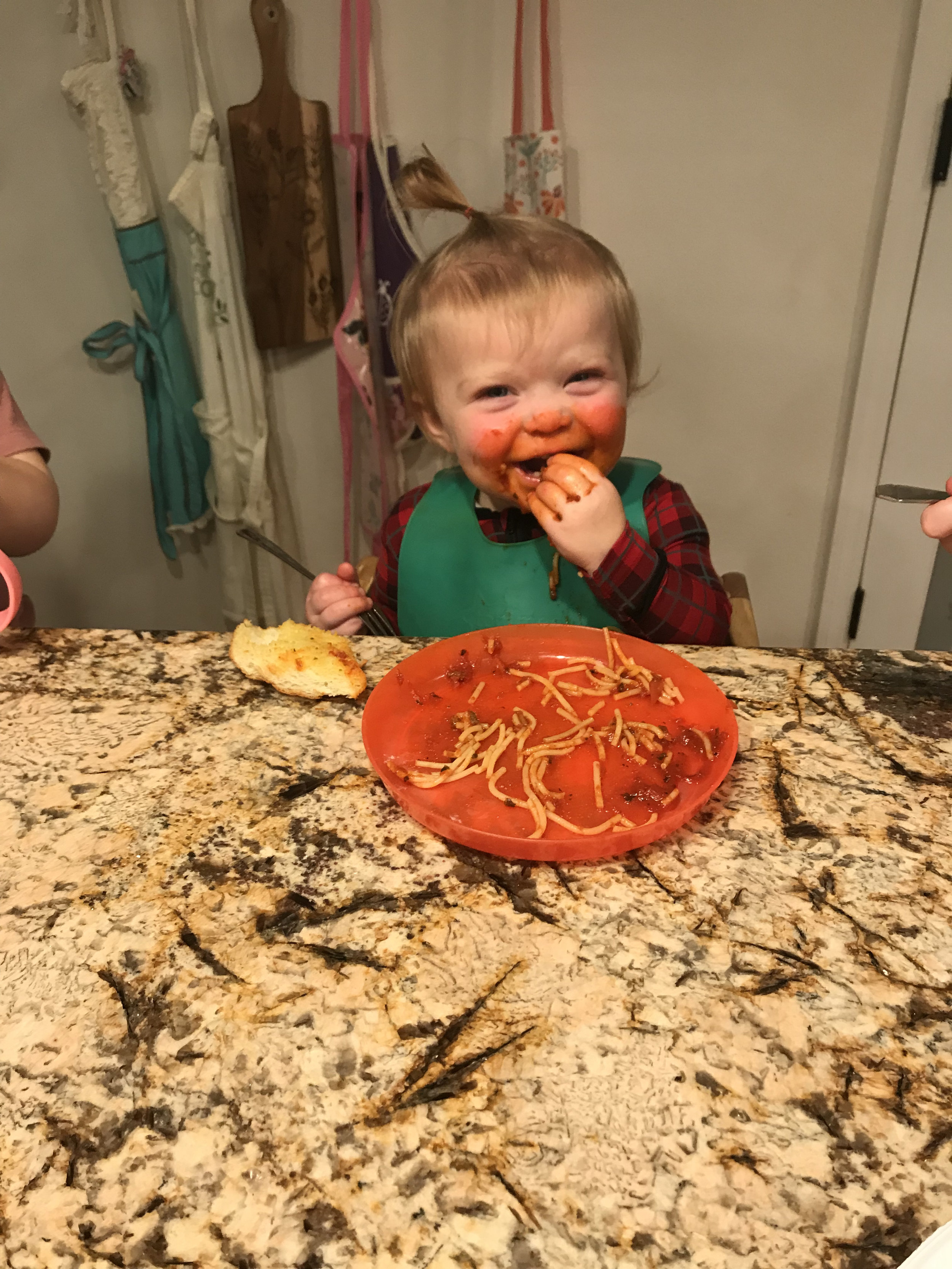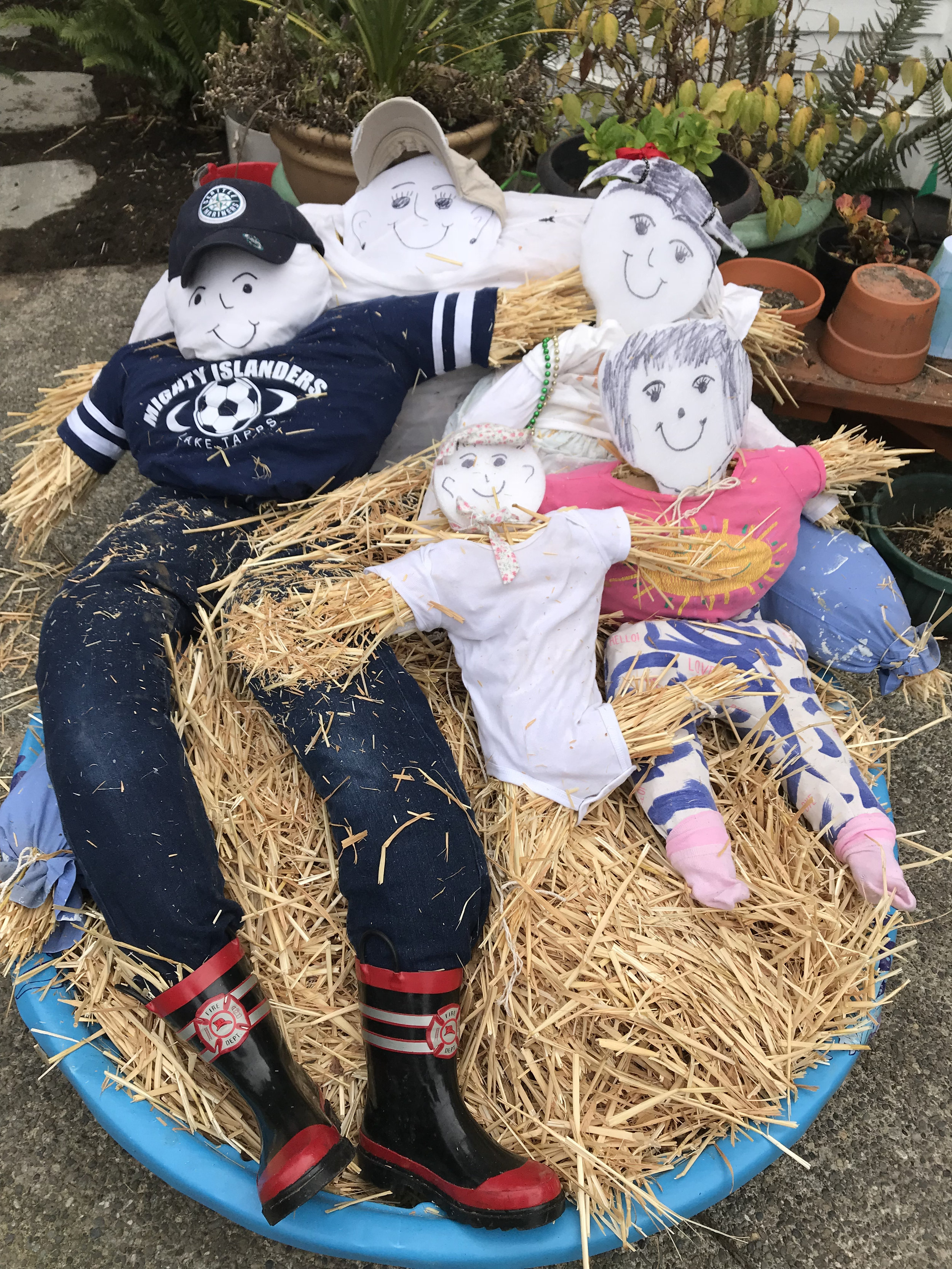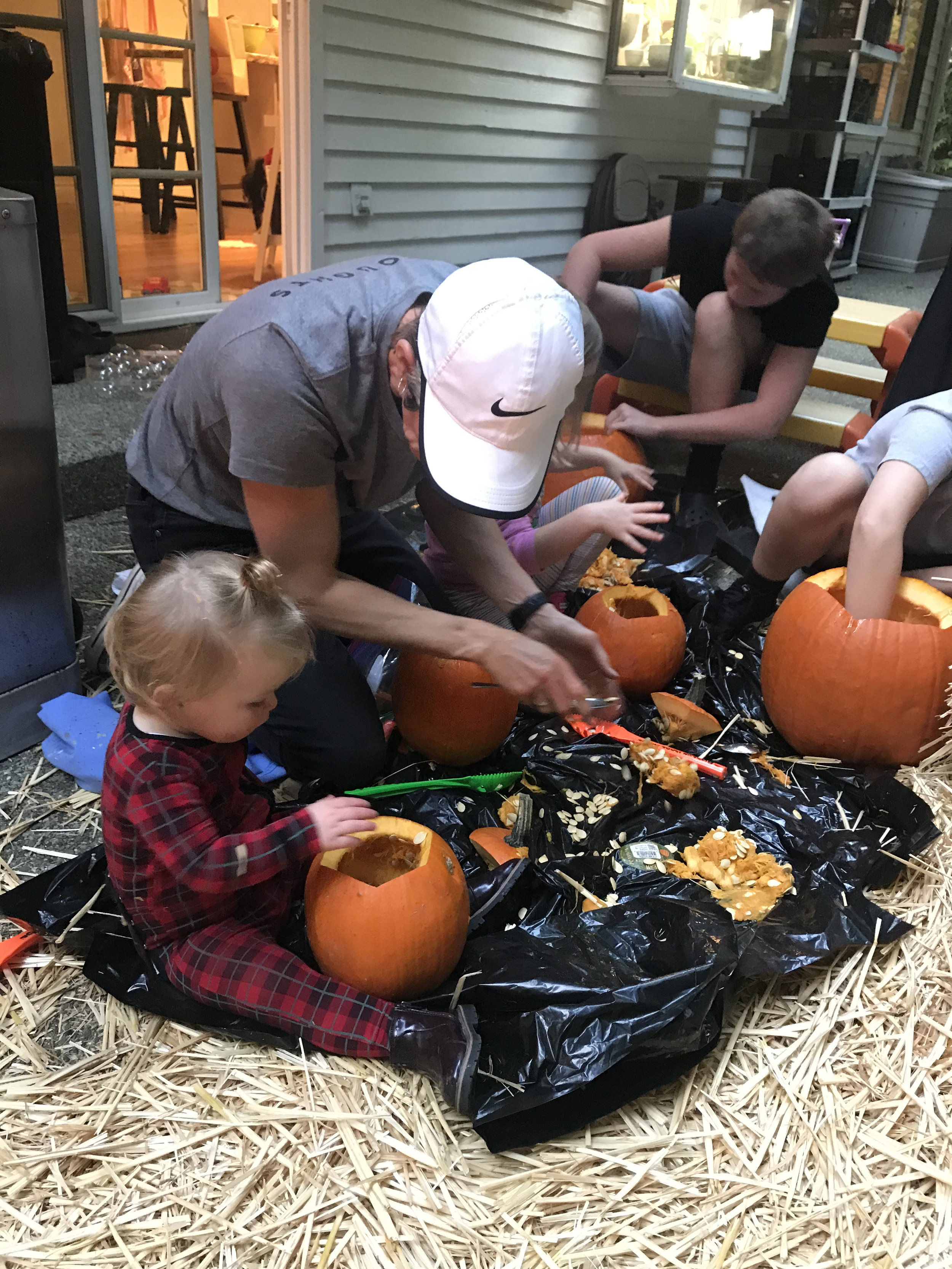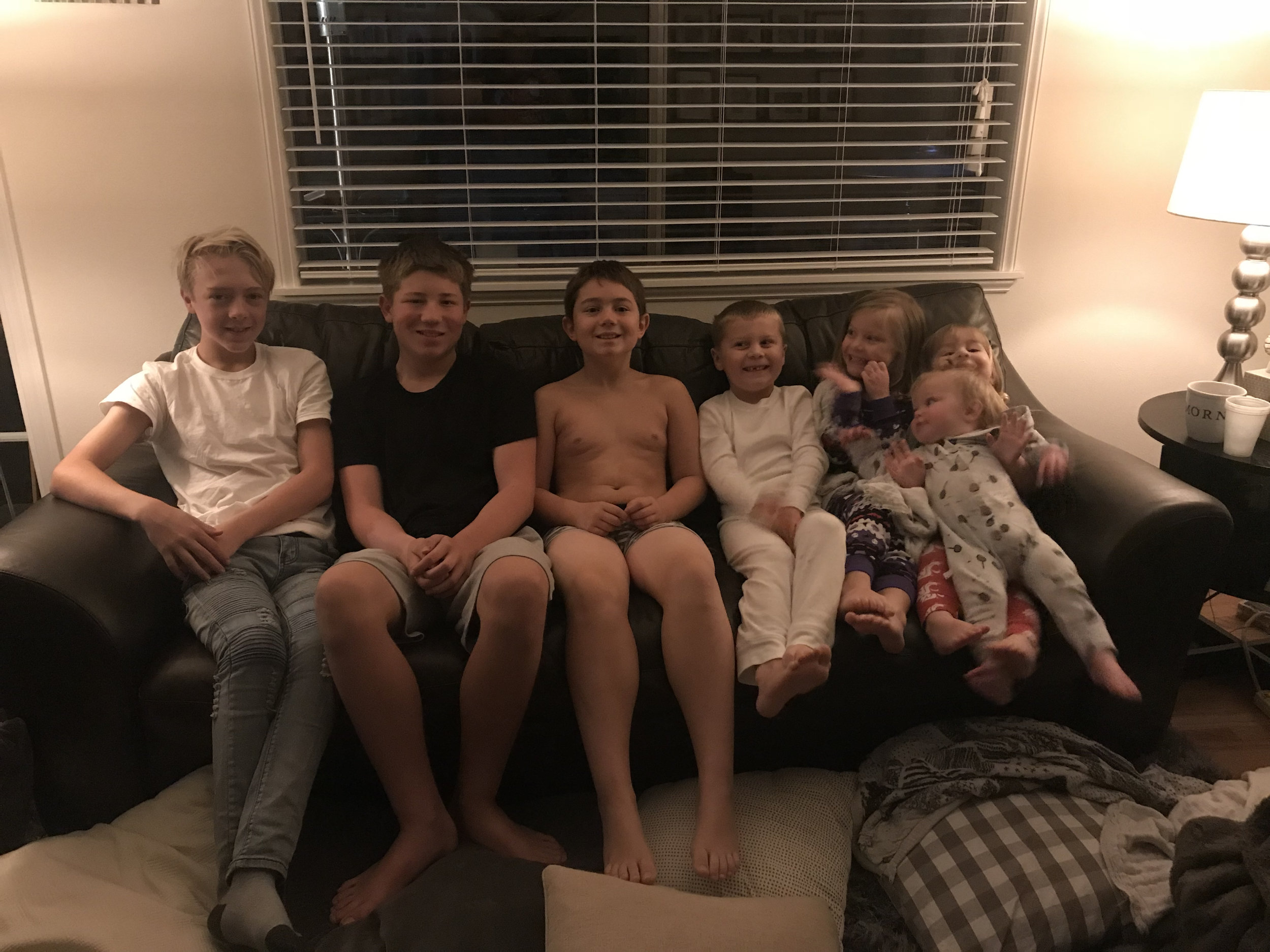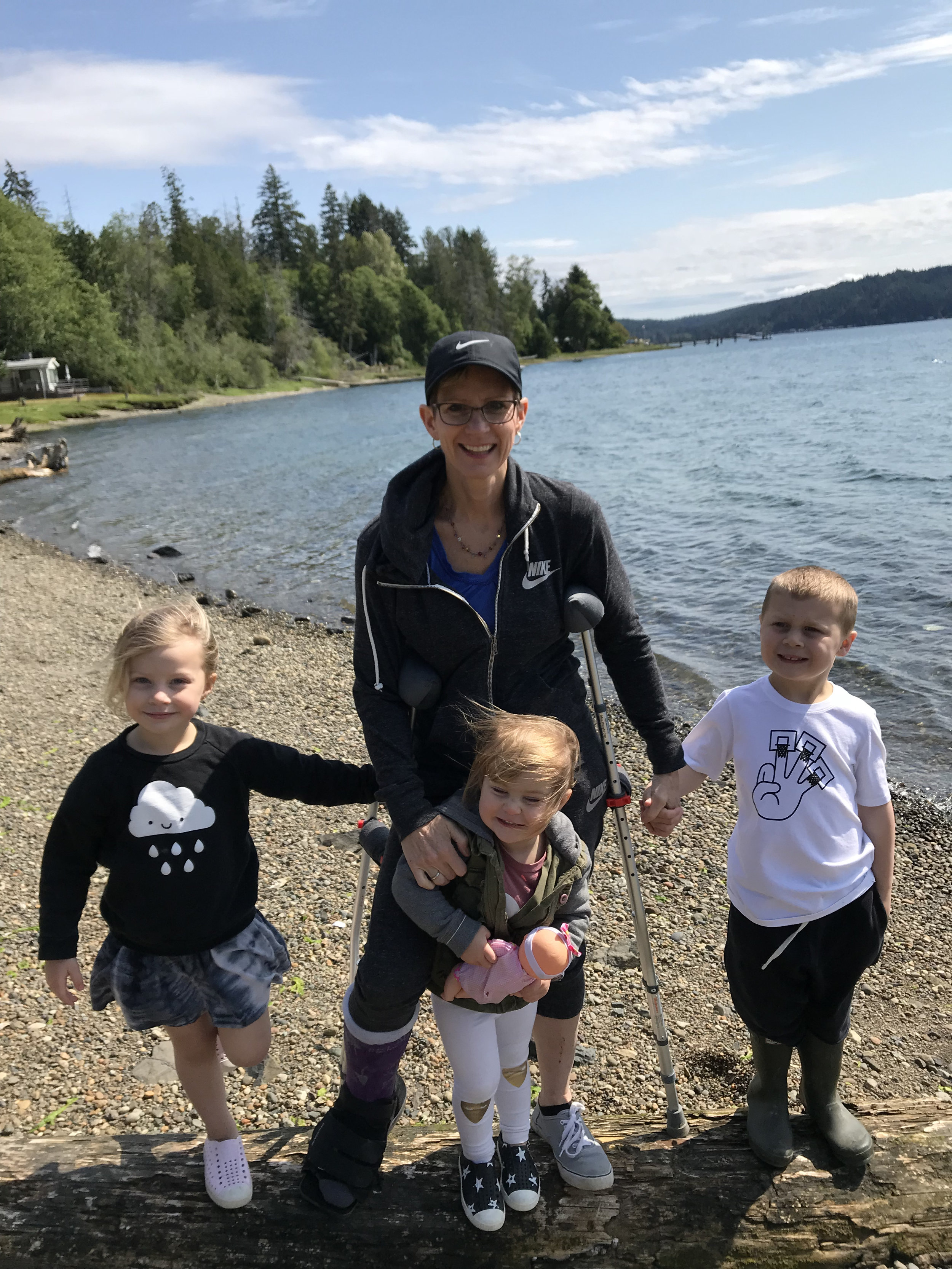The Christmas festivities are over, the tree is down, and the decorations are neatly tucked away for next year. As all the evidence slowly disappears, I am left to reflect on all the memories that were made. I kept several traditions for yet another year, started a new one or two, and said goodbye to some others. Change keeps things from being too predictable—always reminding me what really matters in life—this moment.
The grand-kids made ginger bread houses, watched movies, and enjoyed hot-coco in the morning—a tradition that only changes by the number of kids able to attend each year—could be five, or maybe ten. Each year a new grand-baby joins, while one of the older ones gets too busy to attend.
This year some of the grand-kids got to decorate cookies with Aunt Robin. She brought our her large bucket of cookie cut-outs and special decorating supplies, and with the “help” of some little ones, the new cookie tradition was born.
Christmas Eve has traditionally been spent with my two daughters and four step-kids. It is a tradition that has been going on since 1985, with few exceptions. There were two kids and three grand-kids missing this year, yet the gathering continued as it has for the past thirty years. This Christmas Eve was once again filled with fun, gifts, and good food. Eleven grand-kids got to share the bond that is created when traditions are kept year after year. I always feel happy when my family prioritizes time for these gatherings—my hope is that they will find it as meaningful as I do.
Christmas day brought as much uncertainty as it did predictability. The food, games, and guest were reminiscent of Christmas’ of past. Health issues with two of the family matriarchs reminded me just how memorable this Christmas may end up being. I had to take my Aunt Robin to the ER Christmas night for a fever (she has acute leukemia), but at least it didn’t happen until after all the Christmas guests left. I snuggled up on the couch in her hospital room, and felt blessed that she was well enough to participate in making some wonderful Christmas memories.
My mom’s dementia added a new dimension this Christmas since she didn’t recognize many familiar faces. I tried not to focus on the sadness that her reality brought, and instead felt grateful she and my father could spend a few hours with the family. Mom may not know my name, but she sure can kick my butt in Skip-Bo!
While the emotions vacillated, as they have during past Christmas’, there is always an abundance of gratitude I feel for all that is good—for the laughter—the sharing—and for the family moments that matter most when all else is gone.
May your upcoming year be filled with more joy than pain, more health than sickness, and more gratitude than bitterness. Change will come whether we welcome it or not, just don’t forget to see the good in it as well.
Gavin, Bellamy, Winnie, Jack, Justin, Jordan, Baylor, Nick, Essien, Ashley, Norah, and Nana
Kendra, Jackson, Nana, Baylor, Norah, Winnie, Jordan, Bellamy, Auntie Kelli, Justin, and Gavin.
Aunt Robin and Norah.
Norah, Winnie, Bella, and Baylor making cookies with Aunt Robin.
Movie Time.
Collin, Norah, Kendra, Tammy, Chelsey, and Ray
Peter, Terry, Dad, Mom, Tammy, Ray,Gary, and Venita





